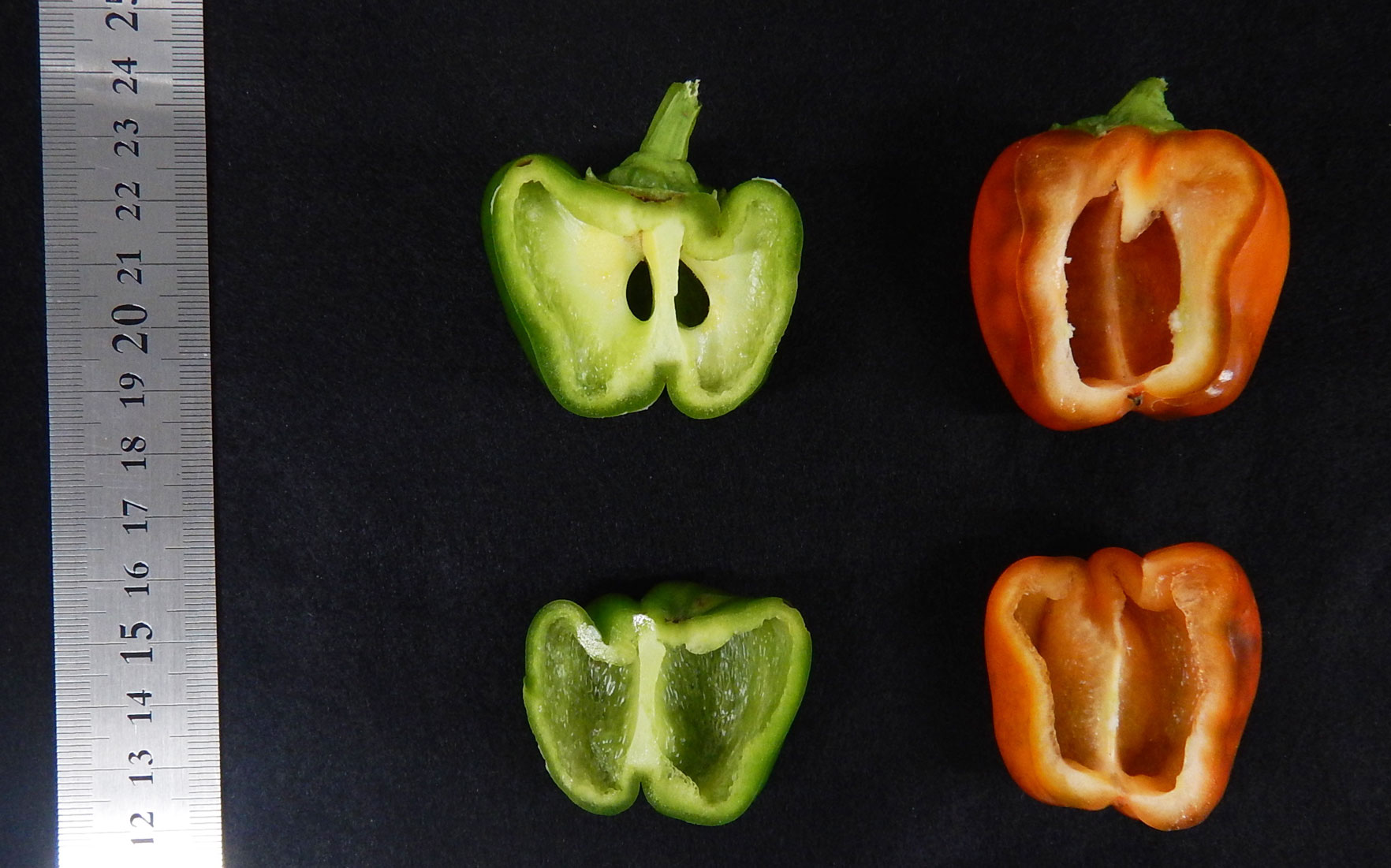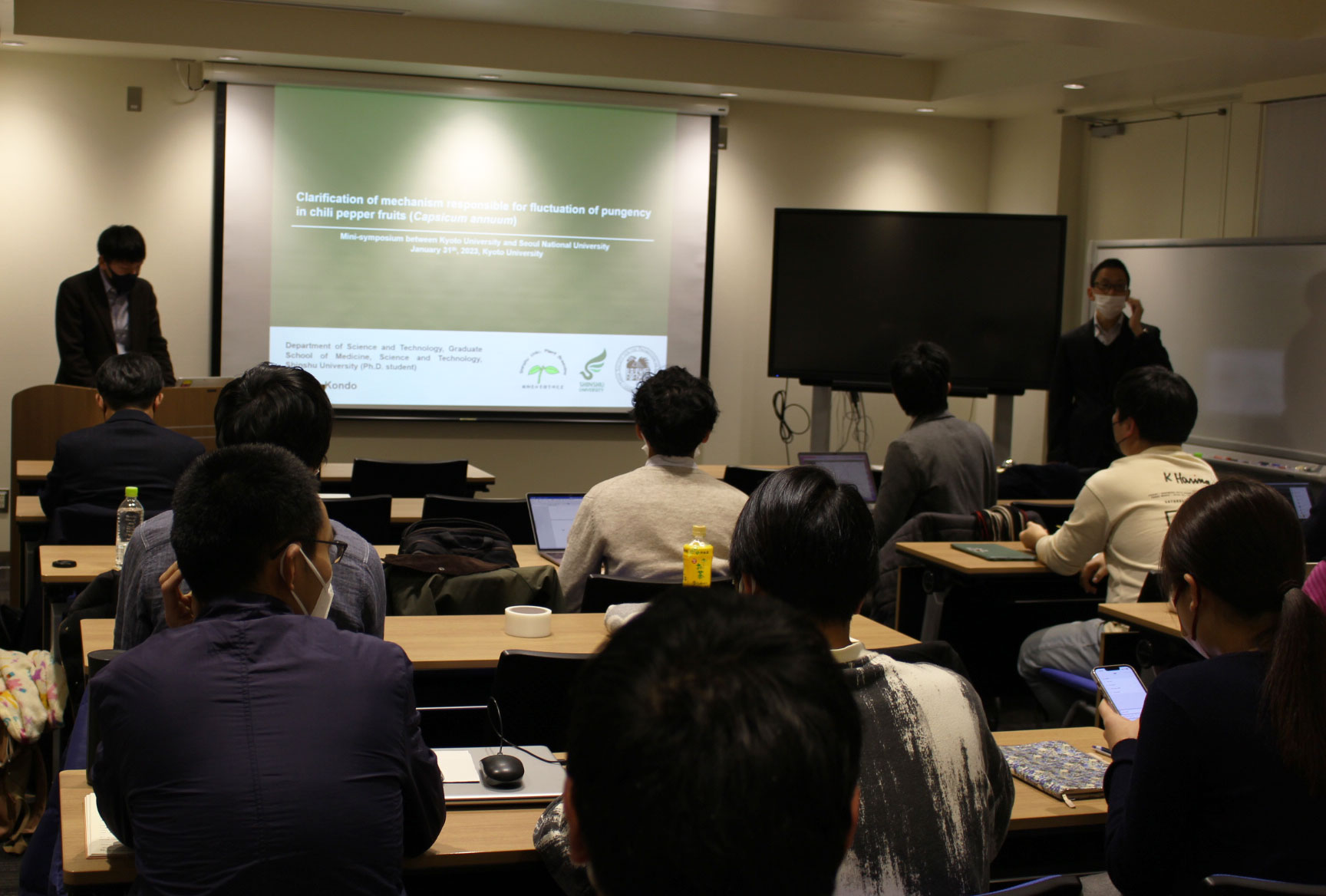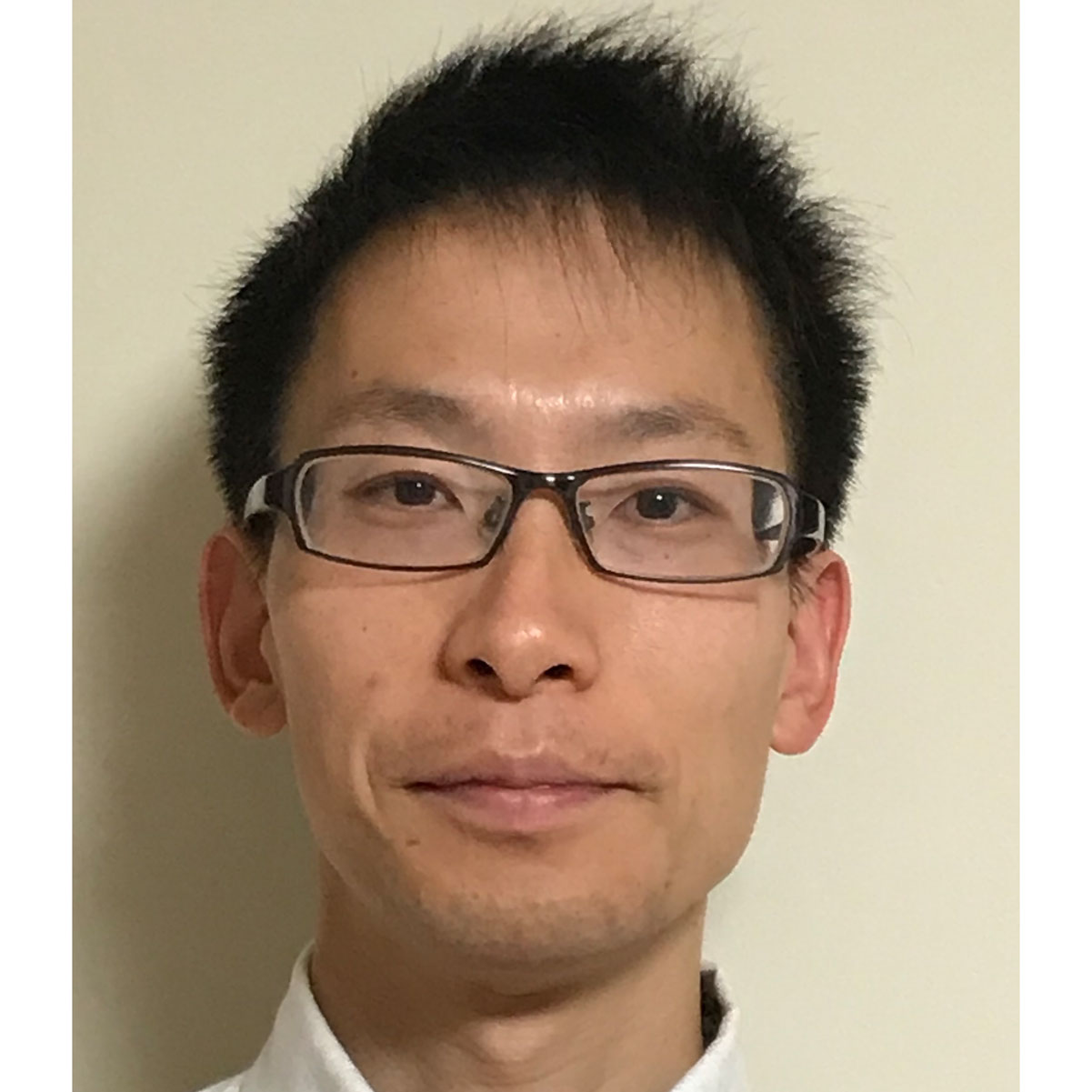International collaborative research to identify genes responsible for seedlessness of chili pepper
Project Gist
Clarify the responsible gene for seedlessness in chili peppers
Keywords
Chili pepper, Sweet pepper, Seedless fruit, Processing vegetable
Background and Purpose
The breeding of seedless fruit cultivars is an important challenge that leads not only the ease of eating, but also to the reduction of industrial waste and the improvement of production efficiency in fruit processing industry, which has been in increasing demand worldwide.
We accidentally discovered a sweet pepper strain that stably produce seedless fruits. In the current project, we performed genetic analysis using the strain, aiming to identify the responsible gene for seedlessness in the chili peppers.
Project Achievements
Through joint research with Seoul National University (SNU), which is a leading research group in genetic breeding research of Solanaceae crops, we have found loci which reduce the number of seed number in chili pepper fruits. In addition, we have promoted international research exchanges through the short-term student training in SNU and the mini-symposium at Kyoto University. Thanks to support of this project, a research network was formed with SNU. This will be the foundation to expand further joint research project focusing on not only seedlessness but also other agronomic traits.
Future Prospects
We will continue the collaborative research with Seoul National University that was launched in this project, aim to identify the gene responsible for seedlessness, and publish a journal paper. We will expand joint research with other overseas research institutes by obtaining external funds such as overseas collaborative research and bilateral exchanges.
Figure


Principal Investigator

TANAKA Yoshiyuki
Graduate School of Agriculture
He graduated from Kyoto University. After being a post-doc in Kyoto Sangyo University, he moved Okayama University as an Assistant Professor in 2013, and became an Associate Professor in 2017. He came back to Kyoto University in 2019. He studies genetic improvement for capsaicin and its analogs in chili pepper, and evolution of capsaicin biosynthesis.
Related URL: http://www.hort.kais.kyoto-u.ac.jp/
